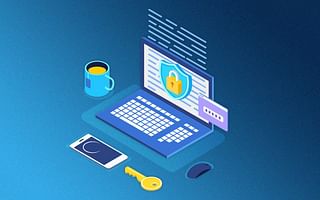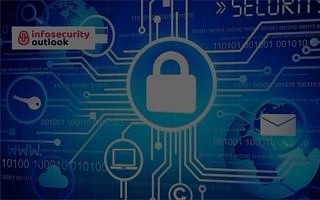Rhett Rowe is a seasoned expert in cybersecurity, boasting over 15 years of professional experience in the industry. He has collaborated with numerous Fortune 500 companies, aiding them in fortifying their digital infrastructures. Rhett is a Certified Ethical Hacker (CEH) and has earned his Master's degree in Information Security from Stanford University.
Securing your personal and sensitive information online is crucial in this digital era. With the rise of cyber threats, it's essential to take proactive steps to protect your online privacy. Here are some effective low-cost online privacy measures you can adopt.
Let's Unravel the Mystery of Your Digital Footprint 👣
Everything you do online leaves a digital footprint. This can include your browsing history, online purchases, social media activity, and more. Understanding this footprint can help you manage and protect your personal information online. For more on this, check out this FAQ on online safety and security.
Laying the Groundwork: Basic Security Measures You Can't Ignore 🔒
Basic security measures can go a long way in ensuring online privacy. This includes using strong, unique passwords, enabling two-factor authentication, and regularly updating your software. Remember, these updates often include security enhancements that protect against new threats.
Harnessing the Power of Privacy Tools 🛠️
Dive into the World of Secure Browsers 🌐
Secure browsers like Tor or Firefox focus on user privacy and reduce your digital footprint. They block tracking cookies, encrypt your browsing, and don’t collect your browsing data.
Why Virtual Private Networks (VPNs) are Your Best Friend Online 🤝
VPNs encrypt your internet connection, making your online activity private. They're essential for protecting personal information online, especially on public Wi-Fi networks.
Privacy-focused Search Engines: Your Secret Weapon for Safe Searches 🔎
Search engines like DuckDuckGo don't track your searches, offering a more private browsing experience.
GDPR: What It Means for You and Your Online Privacy 🇪🇺
The General Data Protection Regulation (GDPR) gives EU citizens more control over their personal data. It’s important to understand how your data is being used and your rights under GDPR. For more details, visit this FAQ on GDPR.
Online Privacy and Security Quiz
Test your knowledge on online privacy and security with this interactive quiz!
Learn more about 🔐 Online Privacy and Security Quiz or discover other HackerDesk quizzes.
Stay Ahead: The Importance of Regularly Checking Your Privacy Settings ⏰
Regularly review and update your privacy settings on all digital platforms. This includes social media, email accounts, and mobile apps. This is one of the best cybersecurity tips for individuals.
Beware of the Bait: Educating Yourself on Phishing Attacks 🎣
Phishing attacks are common and can lead to identity theft. Understand how these attacks work and how to spot them to protect your sensitive information online.
Now that we've discussed the importance of understanding phishing attacks, let's move on to a checklist that will help you ensure your online privacy. This list includes steps that are crucial for safeguarding your personal and sensitive information online.
Remember, securing your personal information online isn't a one-time task. It requires consistent effort and vigilance. Keep up with the latest cybersecurity practices and stay safe online.
Your Journey Towards a Secure Online Presence: What's Next? 🚀
Securing your personal information online isn't a one-time task. It requires consistent effort and vigilance. Keep up with digital world security updates, and always prioritize your online privacy.






























